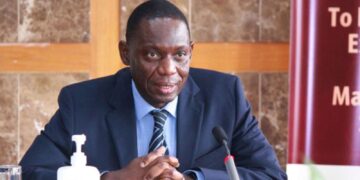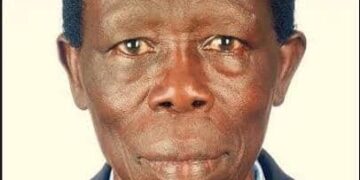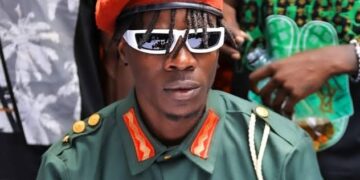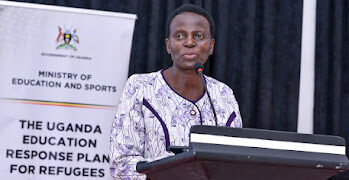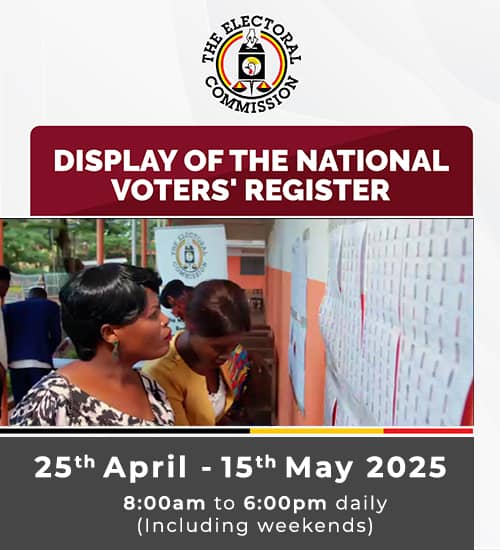The relationship between the two principals at Independence -Prime Minister Dr. Apollo Milton Obote and the Kabaka of Buganda Sir Edward Mutesa II developed cracks immediately after colonialists handed over instruments of power and a new nation to its people. Two years after independence in 1964, the referendum on the “lost counties” stretched their relationship to the limit. 2 years later in 1966, the two were at real war.
But what could have gone wrong between the two principals who had set off to unite the country of many diversities at independence? Sabasaba revisited pages of The Drum Magazine and The New Vision to dig out some of the events that led to the attack on the Kabaka’s Palace in -the 1966 Mengo Crisis.
The marriage of convenience between Dr. Milton Obote’s Uganda People’s Congress (UPC) and Kabaka Yekka (KY) a pressure group aligned to Buganda Kingdom before independence, is said to have fueled events that resulted in one of the darkest days in Buganda.
For instance, according to pundits, the two parties had nothing binding — KY was a Buganda traditionalist’s movement with a fanatical base, while UPC comprised elitist left wing politicians.
Notably, it is believed the marriage had an ulterior motive — ousting the Democratic Party (DP) Prime Minister Benedicto Kiwanuka after he had trounced Obote in the 1961 general elections, which placed DP at the helm of the first pre-independence self- government. So, neither KY nor UPC would independently defeat DP, necessitating the alliance.
Worse still, Kiwanuka, although from Buganda, was liberal-minded, especially on kingdom affairs and therefore popular. His popularity undoubtedly edged out Kabaka Mutesa politically on a nationwide scale. This, as expected, was a bitter pill for the Buganda traditionalists to swallow, since they strongly believed, as it is even today, that the Kabaka is above all men.
Additionally, cold blood between Buganda and Kiwanuka thickened following the Marlborough House conference which preceded the famous Lancaster conference. In this conference, the Kabaka and Buganda’s position in Uganda’s politics were some of the contentious issues, forcing Kiwanuka to storm out in protest of the excessive powers given to Buganda.
That was not the first time Kiwanuka and Mutesa were at loggerheads — they were known not to have been close friends years before. Upon Kiwanuka’s return from World War II, he approached Mutesa for a bursary to further his education. However, he was told that the kingdom had no money, although others were being sponsored. As a result, Kiwanuka sold some of his land to raise college fees in South Africa.
So, partly the myth that no man equals the Kabaka of Buganda, oiled with egoism and intrigue, led to the collision of monarchist Mutesa and anti-monarchist Obote.
After independence, cracks in relations between Mengo and the UPC cropped up. Buganda felt isolated after all regions in Uganda rejected the KY membership. For instance, Busoga region had established the Kyabazinga Yenka Party to drum support for their king.
While still grappling with such rejection and perhaps pushed by the hand of fate, Mutesa in June 1963 went to the lost counties of Bunyoro and shot dead eight Banyoro at a market — they were protesting his presence.
The shooting did not only anger the Banyoro and other kingdoms, but also the central government.
The Uganda Nation and The Nation of June 16-20, 1963 reported rumours of having Mutesa arrested while in Bunyoro, although they were dismissed by Felix Onama, the then minister of state for defence.
Amid all this, the political tempest in Buganda was gathering momentum. So, to contain this tempest, Obote tactfully set a political bait — Parliament on October 8, 1963 elected Mutesa as president.
Ironically, Mutesa’s presidency did not augur well as anticipated. Instead, it fuelled resentment across the country, a situation that Obote manipulated opportunistically to ouster him.
However, the actual KY-UPC claws came out after Bunyoro regained the lost counties following the 1964 referendum — KY, perhaps in vengeance, started political violence in Buganda. In a reactionary manner, Obote, while addressing UPC delegates in Kampala on August 2, 1964, called for the disbandment of KY, saying its task had been completed.
Similarly, Parliament on January 27, 1966 passed a law banning KY. Before reading the new law, justice minister Cuthbert. J. Obwangor said: “KY activities had raked havoc in the central region. Cows were savagely decimated, crops burnt or slashed in gardens and human life destroyed.”
In January 1966 Daidi Ochieng, a KY MP reintroduce his motion urging the government to take action against Colonel Idi Amin over accusations of illegal profiteering from Gold coffee and Ivory from the Congo in what was later known as the Gold Scandal.
The movers of the motion implicated both Amin and Obote claiming Amin opened an account with the Ottoman Bank and deposited shs.340,000 in just 24 Days.
On 31 January Obote met with the UPC parliamentary group in secret to explain the delays. The group decided that the matter involved sensitive information pertaining to national security, so all UPC MPs would reject Ochieng’s motion to avoid an open debate in Parliament on the investigation’s findings.
Shortly before the session of Parliament on 4 February was convened, the cabinet hurriedly met without Obote who was on a tour in Northern Uganda. Only half of the ministers attended, and with Mengo sympathizers led by Grace Ibingira exploiting Obote’s absence, a decision was then made that all UPC MPs should support the resolution. Ochieng’s motion was soon thereafter tabled in Parliament and debated by its members.
When Obote returned to Kampala on 15 February, he swiftly placed five cabinet members involved in the plot against him under arrest; Ibingira, Emmanuel Lumu, Balaki K. Kirya, Mathias Ngobi, and George Magezi were detained by men of the Special Forces. He also elevated Idi Amin to the Chief of Army. The relations between UPC and KY had reached irreparable levels.
Attempts to reconcile the two parties were dented by Kampala deputy mayor Jabel Bidandi Ssali and former UPC wingers Kintu Musoke, Godfrey Binaisa and Joseph Kyeyune (both from central region) who on February 17, 1966 at a press conference vowed to fail any attempt to bridge the rift between UPC and Mengo.
The five dissenting Cabinet ministers were sent to Patiko Prison in Gulu and two days later, the 1962 Constitution was suspended. With total powers now up his sleeves following the suspension of the Constitution, Obote on March 2, 1966 abolished the offices of president and vice-president.
Gripped by a dictatorial frenzy, Obote sealed off Entebbe State House on March 8, 1966 and withdrew all the soldiers and workers. Notably, Mutesa wrote from Makindye State Lodge condemning Obote’s actions.
On April 15, Obote was sworn-in as president and a new constitution promulgated, abolishing all Saza chiefs and Kabaka’s nominees to the Lukiiko. As he swore-in his Cabinet, Obote said he would not allow the bwana mukubwa and owekitibwa in his new government.
Armed with retaliatory feelings following KY disbandment, the Buganda Lukiiko on May 20, 1966 passed a resolution calling the UPC government to vacate Buganda territory by May 30. And, as a follow up on the ultimatum, Mutesa wrote to the United Nations for intervention. The letter which Mutesa signed giving the UPC government the May 30 ultimatum, reached Obote on May 23, as violence erupted in and around Kampala.
Consequently, an emergency Cabinet meeting convened and a state of emergency was declared in Buganda, with a curfew beginning from 7:00pm to 6:00am. Before noon, the KY leader, Amos Sempa and three other Saza chiefs; Lameka Sebanakita of Kyagwe, Michael Matovu of Buddu and James Lutaya of Ssingo, were detained at Kampala Central Police Station and violence erupted in Kampala.
The Nation newspaper of May 24 and 25, reported that Baganda youth had erected road blocks and harassed non-Baganda, especially people from northern Uganda. They also stopped and robbed passengers and shops, as well as destroying property.
Cornered by such lawless developments, Obote, while on Uganda TV and Radio Uganda, issued a statement that branded the Mengo 10-Day ultimatum an act of treason. The statement in part read: “It will be recalled that Sir Edward Mutesa did commit treason by attempting to negotiate without authority for foreign troops.” An accusation was also made that Mutesa had placed an order for a cache of arms with an intention to topple a legitimate government.
Therefore, with treason slapped on Mutesa, the Uganda Army, powered by a Cabinet resolution, stormed Lubiri in the wee hours of May 24, 1966 under the command of Col. Idi Amin who had been promoted to be army commander. Mutesa was only fortunate to have escaped and fled to Britain through Burundi. He died in 1969 in Britain.
It’s a cocktail of events that led to the attack on Lubiri. However, pundits point to the unholy alliance between the two political formations UPC and KY, the clash of egos, intrigue and greed for power to have precipitated the attack.
NEXT: Don’t miss Sir Edward Mutesa’s own narrative on the attack on Lubiri Palace and his narrow escape to exile in Britain.
















